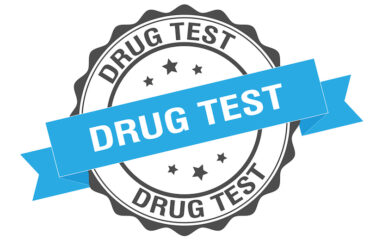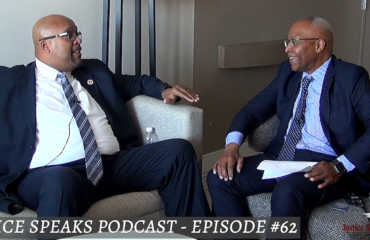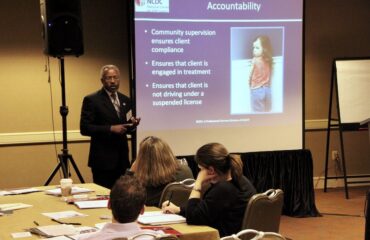Justice Speaks Podcast #69
This episode of Justice Speaks highlights an important initiative by the United States Department of Justice, specifically through the Office of Justice Programs, to reduce crime. In this episode, we interview Judge Karen Friedman (Ret.), Director of Criminal Justice Innovation, Development, and Engagement for the Bureau of Justice Assistance (BJA). This episode is sponsored by Reconnect.
About Judge Friedman
 Judge Friedman begins by discussing her time as a judge in Maryland. She describes her service across various state trial courts, ultimately as a general jurisdiction trial judge. She reflects on the rewarding aspects of being a drug court judge, noting how these courts signify a significant shift from traditional punitive approaches toward one focused on treatment and support. She explains that drug treatment courts are designed to help individuals address substance use issues, reduce recidivism, and promote long-term success in reintegrating into their communities. Working closely with treatment providers and other community resources, Judge Friedman experienced firsthand how a compassionate and structured approach can profoundly impact individuals who might otherwise remain trapped in a cycle of repeated incarceration.
Judge Friedman begins by discussing her time as a judge in Maryland. She describes her service across various state trial courts, ultimately as a general jurisdiction trial judge. She reflects on the rewarding aspects of being a drug court judge, noting how these courts signify a significant shift from traditional punitive approaches toward one focused on treatment and support. She explains that drug treatment courts are designed to help individuals address substance use issues, reduce recidivism, and promote long-term success in reintegrating into their communities. Working closely with treatment providers and other community resources, Judge Friedman experienced firsthand how a compassionate and structured approach can profoundly impact individuals who might otherwise remain trapped in a cycle of repeated incarceration.
Judge Friedman also reflects on her involvement with a Jewish organization in Baltimore that supports women experiencing domestic violence. She had to step away from this role due to a potential conflict of interest when she became a judge and began presiding over domestic violence cases. However, her passion for the cause remained strong, and in response, she helped create an interfaith domestic violence coalition aimed at educating spiritual leaders across various denominations on recognizing, responding to, and supporting victims without exacerbating their situations. This collaborative, community-driven approach underscores her belief that protecting people’s safety, especially in their homes, requires a collective effort from the entire community.
The conversation shifts to Judge Friedman’s approach to managing dockets and courtroom programs as a general jurisdiction judge. She emphasizes the importance of addressing the root causes that bring individuals into the courtroom, whether related to substance use, mental health disorders, or a lack of education and job skills. To better serve those before her, she integrated recovery programs, mental health services, job training opportunities, and GED programs directly into the courtroom setting, allowing individuals to receive the support they need while working through their legal issues.

A Human-Centered Approach to Criminal Justice
Judge Friedman discusses her belief in the critical need to reform the criminal justice system, especially for individuals struggling with substance use disorders, domestic violence, and other underlying issues that often bring people into the courts. Her courtroom experiences highlight the judiciary’s evolving role in not only upholding the law but also fostering rehabilitation, support, and reintegration for those at society’s margins.
She shares how this human-centered approach attracted the attention of major elected officials, with some even informing the White House about her success. In her current role at the BJA, Judge Friedman has a platform to expand these ideas on a national scale. She describes her work within this “funding arm” of the Office of Justice Programs, which distributes grants to support criminal justice reforms.
Conclusion
In conclusion, Judge Friedman shares her long-term vision for the criminal justice system. She advocates for the inclusion of individuals with lived experience in policymaking and decision-making roles, believing this will lead to better outcomes and more meaningful reforms. Whether supporting reentry after incarceration or developing innovative approaches to therapeutic jurisprudence, her work remains driven by her deep passion for helping others.
We thank Judge Friedman for sharing her insights and experiences on Justice Speaks. We also wish to thank Reconnect for sponsoring this podcast episode.
Get more articles like this
in your inbox
Subscribe to our mailing list and get the latest information and updates to your email inbox.
Thank you for subscribing.
Something went wrong.






